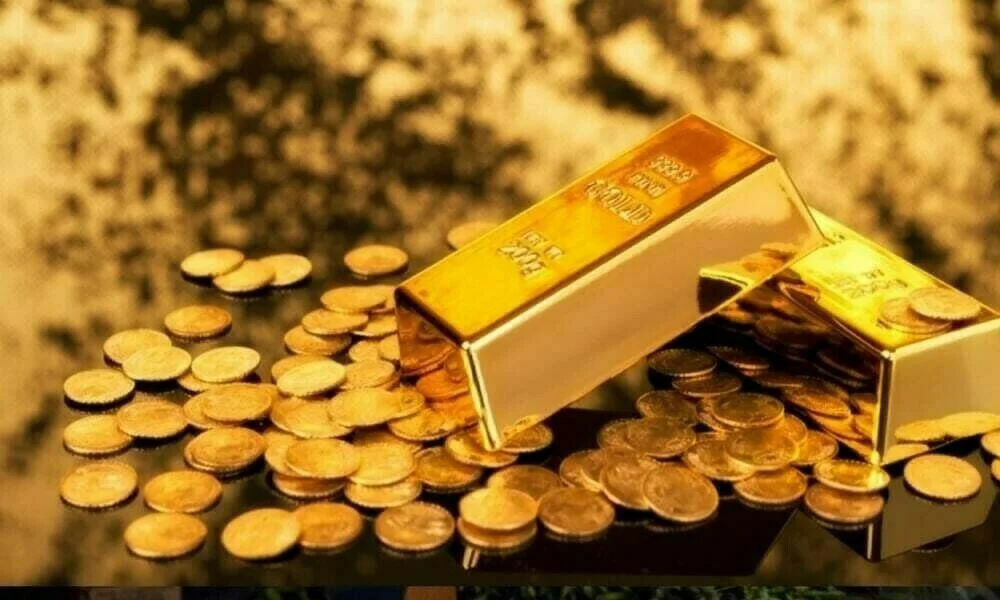In a significant development for global trade and financial markets, the United States and the European Union have reached a temporary truce in their ongoing trade tensions. The decision to delay punitive tariffs has brought a sigh of relief across global markets, notably causing a downward shift in gold prices — a trend now visibly reflected in Pakistan’s domestic bullion market.
A Pause in Trade Hostilities
The announcement came as U.S. President extended the deadline for imposing steep tariffs on a range of European goods, giving negotiators more time to seek common ground. This pause in trade hostilities has created short-term stability in investor sentiment, reducing the demand for safe-haven assets like gold.
Previously, the possibility of an escalating trade war had driven investors to seek the relative security of gold. As tensions simmered down with the truce, investor appetite for gold has started to wane, translating into a notable drop in gold prices in international markets.
Global Gold Prices Take a Dip
In response to the trade truce, the international gold price dropped by 0.6% in the immediate aftermath, falling to approximately $2,337.64 per ounce. This marks a significant pullback from recent highs fueled by global economic uncertainty, geopolitical tensions, and persistent inflationary concerns.
Analysts explain that gold, often seen as a hedge against inflation and political instability, tends to lose appeal when global risks appear to recede, even temporarily. The easing of trade tensions between two major economies like the U.S. and the EU has been interpreted as a sign of diplomatic prudence, leading markets to rebalance portfolios away from gold toward equities and other growth-oriented assets.
Ripple Effects in Pakistan’s Gold Market
The impact of this global price movement has been felt in Pakistan as well, where the price of gold has seen a dramatic correction. According to recent reports, gold prices in Pakistan dropped by a staggering Rs11,700 per tola, with the new price settling around Rs352,000 per tola.
This substantial one-day decline is being attributed to the same global factors influencing bullion prices worldwide — the easing of fears surrounding U.S.-EU trade relations. Additionally, the strength of the Pakistani Rupee against the U.S. Dollar in recent days has further contributed to the drop in local gold prices, making imported commodities slightly cheaper.
Investor Reactions and Market Sentiment
Gold traders and jewelers in Pakistan have responded with mixed emotions. While consumers and small-scale buyers see this as an opportunity to purchase gold at more reasonable prices, many investors who bought at higher levels are expressing concern about short-term losses.
Bullion dealers believe that unless another geopolitical shock or economic event reverses the current trend, gold prices may continue to see downward pressure. However, they also caution that the global economic environment remains volatile, and any shift — such as renewed trade disputes, inflation spikes, or geopolitical conflict — could quickly send prices soaring again.
Is This the End of Gold’s Bullish Run?
While the current dip has prompted questions about whether the bullish run in gold is over, experts suggest it is too early to say. The fundamentals supporting higher gold prices — including ongoing wars, interest rate uncertainty, and fears of global economic slowdown — have not been entirely resolved.
Moreover, gold is traditionally a long-term asset. Many financial advisors still recommend holding a portion of investment portfolios in gold as a safeguard against unforeseen market shocks. For Pakistanis, gold also holds cultural and practical value, especially during the wedding season when demand typically rises, regardless of global trends.
What’s Next?
The trade truce between the U.S. and the EU may only be temporary. If negotiations break down or new economic tensions emerge, safe-haven demand could bounce back, taking gold prices with it. Conversely, if global relations continue to stabilize and inflation remains under control, gold may continue to correct or move sideways.
In Pakistan, local factors such as exchange rate fluctuations, import restrictions, and fiscal policies will also play a role in determining future gold prices. As always, consumers and investors alike are advised to stay informed and consider market volatility when making purchasing or investment decisions.
Reference: امریکہ یورپین یونین میں تجارتی جنگ کا عارضی سیزفائر عالمی مارکیٹ اور پاکستان میں سونا سستا ہو گیا









